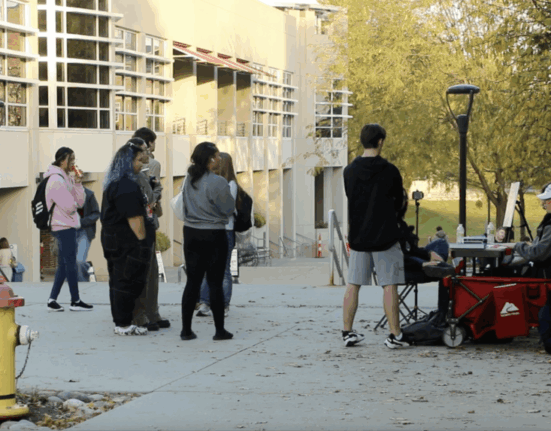By: Jamie Harvey, Reporter
OMAHA, Neb. – University of Oklahoma researchers released a report detailing their two-year investigation into ideological extremists’ online messaging and influence.
They found that where nonviolent ideological groups focus on group agency and future possibilities, violent ideological groups dwell on differences with outgroups. Lead investigator Matthew Jensen, Ph.D., said that extremist rhetoric works to justify clear boundaries between ingroups and outgroups.
Those, often misleading, justifications tend to tie into emotional appeals. An analysis of online postings from ideological extremists, primarily collected from Twitter archives, found that prominent members of extreme ideological groups focus on negative emotions–most notably anger and fear.
Using machine learning to analyze archival data, Jensen and his team also found extremist online chatter became more religious before violent events like jihadist attacks or the January 6th riot. “This was something that was a little bit of a surprise to us,” Jensen said. “Its consistency across both of our data sets leads us to believe that it is something substantive that might be of interest to pursue further.”
Tweet by American neo-Nazi Andrew Anglin, March 29, 2023 (Photo/Jamie Harvey)
Complementing their work with trace data, investigators also examined how ideological messages influence people through lab experiments. Their findings suggest that appeals to inherent social identities (e.g., race) stir up more negative emotional responses than appeals to chosen social identities (e.g., political affiliation).
More broadly, the study found that simple exposure to ideological social media content can influence attitudes. Although he acknowledges that the way people form their beliefs is deeply personal, Jensen recommends looking into the claims made by posts that “raise your internal temperature.” Jensen said he and his team often see a “co-occurrence of ideological messages with misinformation.”
Graphic depicting the executive summary of “Year 2 Final Report”, April. 27, 2023 (Photo/Jamie Harvey)
Professionals outside the realm of academic research have also noticed the association between ideological content and misinformation. Radio Television Digital News Association (RTDNA) President and CEO Dan Shelley said that ideologues pass on radicalizing information to intentionally mislead the public and cause chaos. He said that in this “wacky” ideologically charged environment, everyone has a responsibility to “fact check everything they see, hear, or read.”
Shelley recommends checking claims spread on social media against reputable news sources and fact-checking websites like Snopes.com.
Post Views: 9






Leave feedback about this